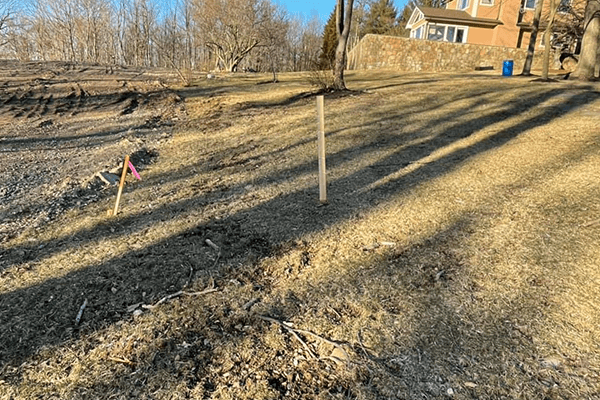|
RCBJ-Audible (Listen For Free)
|
Edward Teitel’s Attorney Asks Clarkstown Court For Time To Work Out A Settlement
By Tina Traster
The attorney representing the Valley Cottage homeowner who built an illegal house addition and who allegedly cleared a large swath of trees from his secluded property as well as town-owned land told the town court justice that his client is dealing with the problem and wants to reach a settlement with the town.
Appearing on Tuesday before town court justice Scott Ugell, who noted the allegations concerned serious violations, attorney Donald Feerick said his client Edward Teitel “has started dealing with the violations” and that he is “taking voluntary efforts to ensure compliance.”
Feerick said his client had applied for land disturbance permits, has given the town a “TOPO,” or topographical map of the property and has undertaken efforts to seed and soil the disturbed land to control runoff. He said his client has submitted an “as built” plan to the town.
“We’d like more time,” Feerick told the court. “We’d like to work out a resolution or settlement with the town.”
Ugell adjourned the hearing until May 4th.
On Nov.16 the town issued a Stop Work Order and Notice of Violation under provisions of the town’s Stormwater Management code. The order calls for the property owner to maintain, repair, and install silt fences, issue a site plan, and submit a survey.
In January, the Town of Clarkstown took Teitel to court for non-compliance with the notice of violation. The town’s suit, filed January 22, says the defendant has failed to comply with erosion and sediment control measures. The suit also says the defendant did not submit a site plan, erosion plan, or survey.
“Some remediation has taken place,” said Town Attorney Leslie Kahn. “The property owner has removed the pillars and gate to his home that were on town property and has restored the construction easement.”
Marvin Baum, a local Valley Cottage resident and member of the NY/NJ Trail Conference initiated the effort to ask the town to punish the owner for allegedly removing a large swath of mature growth trees on the owner’s land as well as on abutting town-owned property purchased nearly 20 years ago through the town’s Open Space Fund. He also brought the illegal second-floor addition to the town’s attention.
Kahn said the permit application submitted by Teitel to the Town Building Department is under review by the building inspector.
According to the building inspector, if the plans submitted comply with all state Building and Fire Codes and Clarkstown Town and Zoning codes, the permit will be issued,” she said. “All required inspections will be done to ensure the property meets all Building, Fire and Zoning codes. If however, the property does not comply, the permit will not be issued.”
But a group of conservationists want Clarkstown to address the felling of scores of trees. They allege the homeowner has removed more than 100 trees from land known as West Hook Mountain. The land was purchased under the Town’s Open Space Initiative. Funds from the town’s $22 million open space bond in 2003 were used to purchase the $1.7 million property. Clarkstown voters passed the referendum in November 2000 for the acquisition of open space. The West Hook Mountain property was cited as one of the driving forces behind the open space bond referendum.
RCBJ has learned that the trees had not been razed when the previous homeowners sold the property in 2018.
“The Town is extremely disturbed by the allegation of destruction of trees on Town property as well as the other alleged violations that have occurred at 20 Old Stone Road,” Kahn has said.
“There is an active investigation pending with the Clarkstown Police Department as to the alleged tree removal on Town property,” Kahn said.
Clarkstown town code imposes a minimum fine of $500 and up to of $1,500 and/or community service in the amount of 30 days for violation of the town’s tree ordinance. The town can also force the violator to remediate damage by replacing the trees. Each tree is a separate offense under the code.














